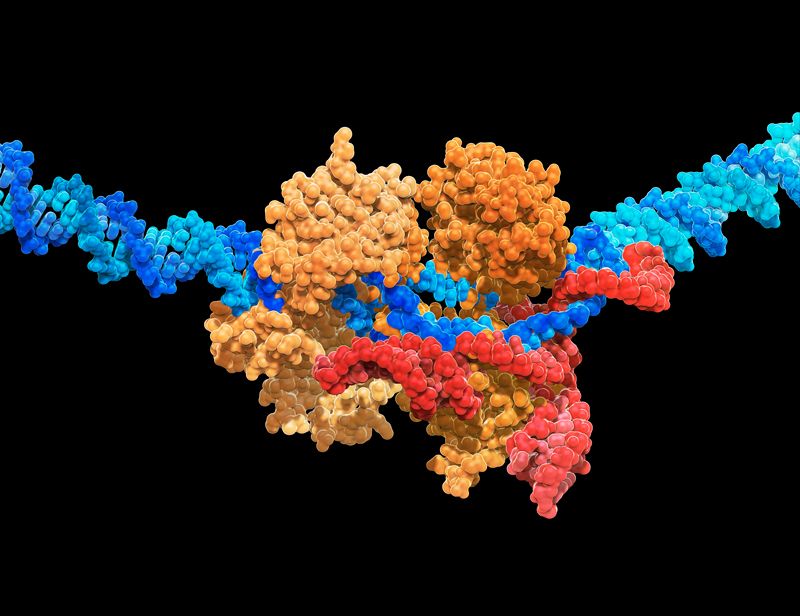A super-precise version of the CRISPR genome-editing tool just got even better. Researchers have boosted the accuracy of a technique based on the popular but error-prone CRISPR–Cas9 system by engineering enzymes that can precisely target DNA without introducing as many unwanted mutations.
The enzymes, reported on 10 February in Nature Biotechnology1, could make a method called base editing, which allows researchers to convert one DNA letter into another, more feasible as a tool to treat genetic diseases.
Base editing, first described in 20162, offers greater control than does conventional CRISPR–Cas9 editing, but can also introduce random, ‘off-target’ changes to the genome. The new enzymes are less likely to make these errors, so could allow researchers to develop safer gene therapies.

